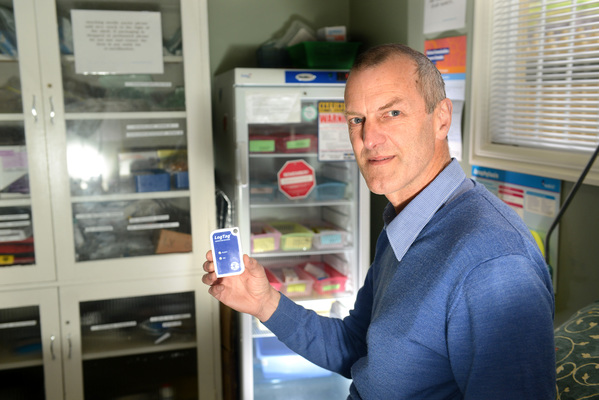
By Jesse Graham
WARBURTON residents may have to travel out of town to receive vaccines, with the town’s clinic being cut off by the government due to frequent power outages affecting its supplies.
Last month, the Warburton Medical Group received an advice form from the Department of Health and Human Services in regards to a cold chain breach (CCB) on 10 August.
A CCB is where vaccines are not kept at their correct temperatures and become at risk of being ineffectual, and the advice form noted that, as it was the business’ sixth CCB since May, it would no longer supply government-funded vaccines to the clinic.
Doctor David Church told the Mail that the CCBs were a result of unplanned power outages in the area that impacted the clinic’s vaccine fridge.
“There are planned outages – which we normally get notifications of and which we can work around, because we specifically make sure that vaccines are transported elsewhere prior to the power outage,” Dr Church said.
“It’s mainly the unplanned outages that are the problem.
“Vaccines aren’t likely to become harmful (because of CCBs), they just don’t work, and so that really needs to be avoided at all costs, and we are really strict about this.”
He said the clinic’s fridge had a data log of how long power had been interrupted for and what temperatures the vaccines had reached, and that all CCBs were reported to the government.
“Unfortunately, the Health Department has said, ‘We’re not going to give you any more vaccines unless you can fix this’,” Dr Church said.
He said remedies included uninterruptable power sources, which provide short-term emergency power, a backup battery or a generator for the business – some of which, he said, would cost the business “many thousands of dollars”.
“No UPS is going to keep a fridge for up to 13 or 24 hours,” he said.
“That is only going to be a partial remedy for prolonged, unplanned power outages … it’s not going to be adequate to keep vaccines safe for prolonged periods of time.”
Until a remedy is found for the power supply to the fridge, Dr Church said residents would have to travel out of town to recieve vaccines once the clinic’s supplies had run out, which he believed might discourage people from seeking immunisation.
Dr Church said he would like power company AusNet Services to contribute to the cost of a backup power supply, and that he had written to the company about guaranteeing ongoing power for the clinic.
An AusNet spokesperson said on Friday 16 September, that it had only become aware of the issue “two days ago”, when contacted by the Mail with questions, but that the clinic had been contacted.
“A range of options have been discussed with the clinic, and we will continue to investigate options to improve the reliability on our network,” the spokesperson said.
The spokesperson said Warburton “has not had a good power supply”, due to trees and vegetation hitting power lines and causing outages.
“These issues are mostly related to the weather and as a result, we are unable to guarantee an uninterruptable power supply,” they said.
They said other outages were due to bushfire prevention works in recent years, but that the works had been “largely finished”, and more works were ahead to replace and upgrade power lines and manage vegetation.
“We are also investigating the feasibility of undergrounding some of the high voltage backbone line in this area which supplies Warburton, or of replacing it with aerial bundled cable,” the spokesperson said.
The spokesperson said there were a number of options available to keep the clinic’s vaccine fridge running, but said further discussions would take place with the clinic, and between the clinic and the Health Department.
“We believe an effective solution can be found for significantly less than the sum mentioned,” they said.






